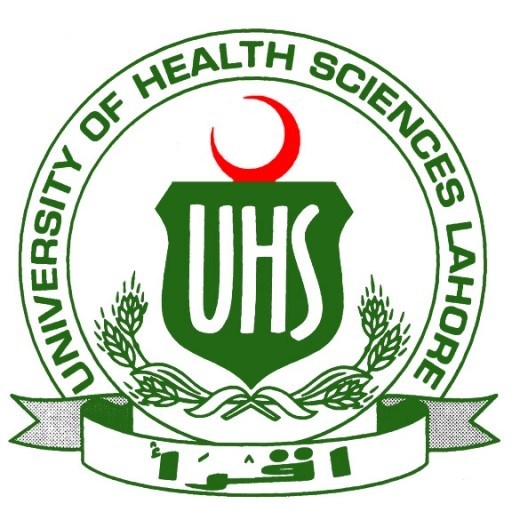The Bachelor of Medicine program at the University of Health Sciences is a comprehensive and rigorous educational pathway designed to prepare future healthcare professionals for a fulfilling career in medicine. This program offers in-depth knowledge of human anatomy, physiology, biochemistry, and pathology, providing students with a strong scientific foundation essential for understanding the complexities of the human body and health. The curriculum combines theoretical coursework with practical training, enabling students to develop essential clinical skills through hands-on experiences in real healthcare settings. Throughout the program, students engage in a variety of modules covering medical ethics, patient communication, diagnostics, pharmacology, and preventive medicine, ensuring a well-rounded education that emphasizes both technical expertise and compassionate care.
The program is structured to foster critical thinking, problem-solving skills, and a commitment to lifelong learning, preparing graduates to adapt to rapid advancements in medicine and healthcare technology. Students have access to state-of-the-art laboratories, simulation centers, and clinical rotations in affiliated hospitals and healthcare institutions, providing real-world exposure and a unique opportunity to apply their knowledge under supervision. The faculty consists of experienced medical practitioners and researchers dedicated to providing high-quality education and mentorship. Graduates of the program are equipped to pursue further specialization or to work as general practitioners, contributing significantly to community health and well-being. The university emphasizes interdisciplinary cooperation, ethical practice, and continuous professional development, ensuring that students are well-prepared for the dynamic and evolving field of medicine. Upon successful completion, graduates receive a recognized medical degree, enabling them to register with medical licensing authorities and begin their professional journey in diverse healthcare environments globally.
Program Overview:
The Medicine degree program at the University of Health Sciences is designed to provide students with comprehensive education and training in the fundamental and clinical sciences necessary for a successful medical career. Throughout the program, students will acquire a deep understanding of human anatomy, physiology, pathology, pharmacology, microbiology, and other essential medical disciplines. The curriculum combines theoretical knowledge with practical skills, ensuring that graduates are well-prepared to meet the healthcare needs of diverse populations. The program emphasizes evidence-based medicine, ethical practice, and patient-centered care, fostering professionalism and compassion in future physicians.
Students will engage in extensive hands-on training through clinical rotations in various specialties, including internal medicine, surgery, pediatrics, obstetrics and gynecology, psychiatry, and more. These practical experiences are integrated throughout the program to develop clinical reasoning, diagnostic skills, and effective communication with patients and colleagues. The program also offers opportunities for research and innovation, encouraging students to participate in medical studies and projects that can contribute to advancements in healthcare.
The learning environment is supported by state-of-the-art laboratories, simulation centers, and well-equipped teaching hospitals, providing students with immersive training. Faculty members are experienced healthcare professionals dedicated to mentoring students and fostering a collaborative academic atmosphere. Graduates of the program will be eligible to take licensing examinations and pursue postgraduate education or specialized training in various fields of medicine.
The Medicine program at the University of Health Sciences is committed to cultivating future leaders in medicine who are capable of addressing contemporary health challenges and improving patient outcomes worldwide. With a rigorous curriculum, practical training, and a focus on ethical and compassionate care, the program aims to produce physicians who are not only highly competent but also dedicated to lifelong learning and service.
Admission to the Medicine program requires applicants to possess a secondary education certificate with a strong academic record, particularly in science subjects such as Biology, Chemistry, Physics, and Mathematics. Prospective students must pass the university’s entrance examinations, which assess knowledge in these core areas, demonstrating their readiness for rigorous medical training. Additionally, applicants are typically required to submit relevant documents including a completed application form, copies of educational certificates, a medical fitness certificate confirming good health and absence of contagious diseases, and evidence of proficiency in English or the official language of instruction. The selection process is highly competitive, and preference is often given to candidates who show exceptional academic achievement, relevant extracurricular activities, volunteer work in healthcare settings, and strong motivation to pursue a career in medicine. Some programs may also conduct interviews or aptitude tests to evaluate candidates' communication skills, empathy, and commitment to healthcare. International students must meet additional criteria such as obtaining necessary visas and providing proof of language proficiency through standardized tests like TOEFL or IELTS. It is essential for applicants to closely follow the university’s specific admission guidelines outlined on the official website, as requirements may vary slightly from year to year. Once admitted, students are expected to participate in orientation sessions, comply with the academic integrity policies, and adhere to the mandatory attendance policies throughout the duration of the program. The curriculum includes theoretical coursework, practical clinical training, and research components designed to prepare students comprehensively for a medical career. Graduates receive a medical degree that qualifies them to undertake residency programs, licensure examinations, and ultimately serve as medical practitioners. The program emphasizes the development of clinical skills, ethical practice, and lifelong learning, aligning with the university’s mission to produce highly qualified healthcare professionals committed to advancing medical science and improving community health.
Financing of the Medicine program at the University of Health Sciences is structured to ensure accessibility and support for enrolled students. The university offers a variety of funding options to facilitate students’ educational pursuits. Tuition fees are established according to national educational standards and are subject to annual updates; specific costs are publicly available on the university’s official website. For international students and those requiring financial assistance, the university provides scholarships based on academic performance, merit, and social needs. These scholarships can significantly reduce the financial burden and are awarded through a competitive selection process. Additionally, students may access state grants and subsidies for higher education, subject to eligibility requirements and application procedures. The university collaborates with various government agencies and private organizations to provide financial aid programs, including loan options with favorable repayment terms designed to support students throughout their studies. The institution also promotes part-time employment opportunities within or associated with the university, enabling students to gain work experience while financing their education. Payment plans are often available, allowing students to pay their tuition fees in installments over the academic year, easing financial stress. Furthermore, the university offers guidance and advisory services to help students navigate their financial options and maximize available support avenues. Financial aid application deadlines, eligibility criteria, and detailed procedures are communicated through official university channels. Overall, the financing framework for the Medicine program aims to make medical education more accessible and affordable, fostering the development of a well-trained healthcare workforce.
The Bachelor of Medicine program at the University of Health Sciences is a comprehensive and rigorous curriculum designed to prepare students for a professional career in medicine. The program is structured to provide students with a solid foundation in the fundamental sciences, including anatomy, physiology, biochemistry, microbiology, and pathology. Students also gain extensive practical skills through clinical training in affiliated hospitals and medical centers. The curriculum emphasizes not only the acquisition of medical knowledge but also the development of critical thinking, communication skills, and ethical judgment necessary for providing high-quality patient care. The program typically spans six years, with the initial years focusing on pre-clinical studies, followed by clinical rotations across various medical specialties. Throughout the coursework, students are encouraged to engage in research activities, enabling them to stay abreast of the latest advancements in medicine. The university maintains strong partnerships with healthcare institutions, ensuring students receive hands-on experience under the supervision of experienced clinicians. Upon graduation, students receive a medical degree qualifying them to pursue further specialization or enter residency programs. The program is delivered through a combination of lectures, seminars, laboratory work, and practical training, integrating modern teaching methods and medical technologies. The university also offers support services such as academic advising, language training, and career counseling to assist students throughout their studies. Graduates of the program are well-prepared to work in various healthcare environments, contribute to medical research, and improve patient outcomes. The university continues to update its curriculum to align with international standards and emerging healthcare challenges, aiming to produce competent, compassionate, and innovative medical professionals.








